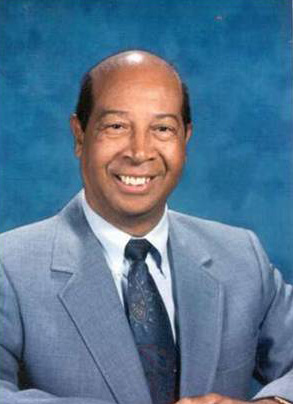
Wesley Earl Acton, Utica, KY
Mr. Acton is an educator, Owensboro NAACP leader, co-founder and organizer of the Owensboro Human Relations Commission. Mr. Acton received the Owensboro Human Relations Award in 1989 for his long-time commitment to civic affairs and education. He has been active throughout his life in integrating schools, teaching positions, stores and businesses. He also lead efforts to clean, maintain and upgrade cemeteries for African Americans in his area.

Paul Bather (1947-2009), Louisville, KY
Mr. Bather was a political and business and civil leader who served two terms in the Ky. House of representatives (2000 and 2002) and was a member of the Louisville Board of Aldermen from 1986-2000. As a political leader, Mr. Bather sought to give voice to those who would not normally be heard. As a state representative, he championed legislation to protect low-income communities from environmental pollution and worked with the University of Kentucky and University of Louisville to establish the Kentucky E-health Network to provide quality healthcare to thousands of indigent Kentuckians.

Dr. James Bond (1863-1929), Lawrenceburg/Louisville, KY
Dr. Bond was born a slave in Woodford County, Ky., but rose to become one of Kentucky’s great educators and promoters of equality in the late 19th and early 20th centuries. Dr. Bond was a minister, teacher, and civil rights activist who spoke against discrimination in Kentucky and Tennessee, where he also lived and worked at Fisk Theological Seminary. Dr. Bond received his Bachelor’s of Science Degree from Berea College in Kentucky in 1892 – one of only 2000 African Americans in the country with a college degree at the time. He later received his Divinity degree from Oberlin College and a Doctorate degree from Berea College.

Curlee Brown Sr. (1909-1976), Paducah, KY
Mr. Brown was the longtime president of the Paducah branch of the NAACP and served as a vice president of the Kentucky NAACP for many years. He helped with integration plans in the McCracken County School District after the 1954 Brown v. Board of Education decision and fought for the integration of movie theaters and other public accommodations in Paducah during the 1950s. He was a president of the Carpenters Union Local 1912 and was a board member of the local Boys Club. Mr. Brown's work to help children, workers and people of color is celebrated every year by the Kentucky NAACP, which annual hands out its Curlee Brown Award to outstanding members.
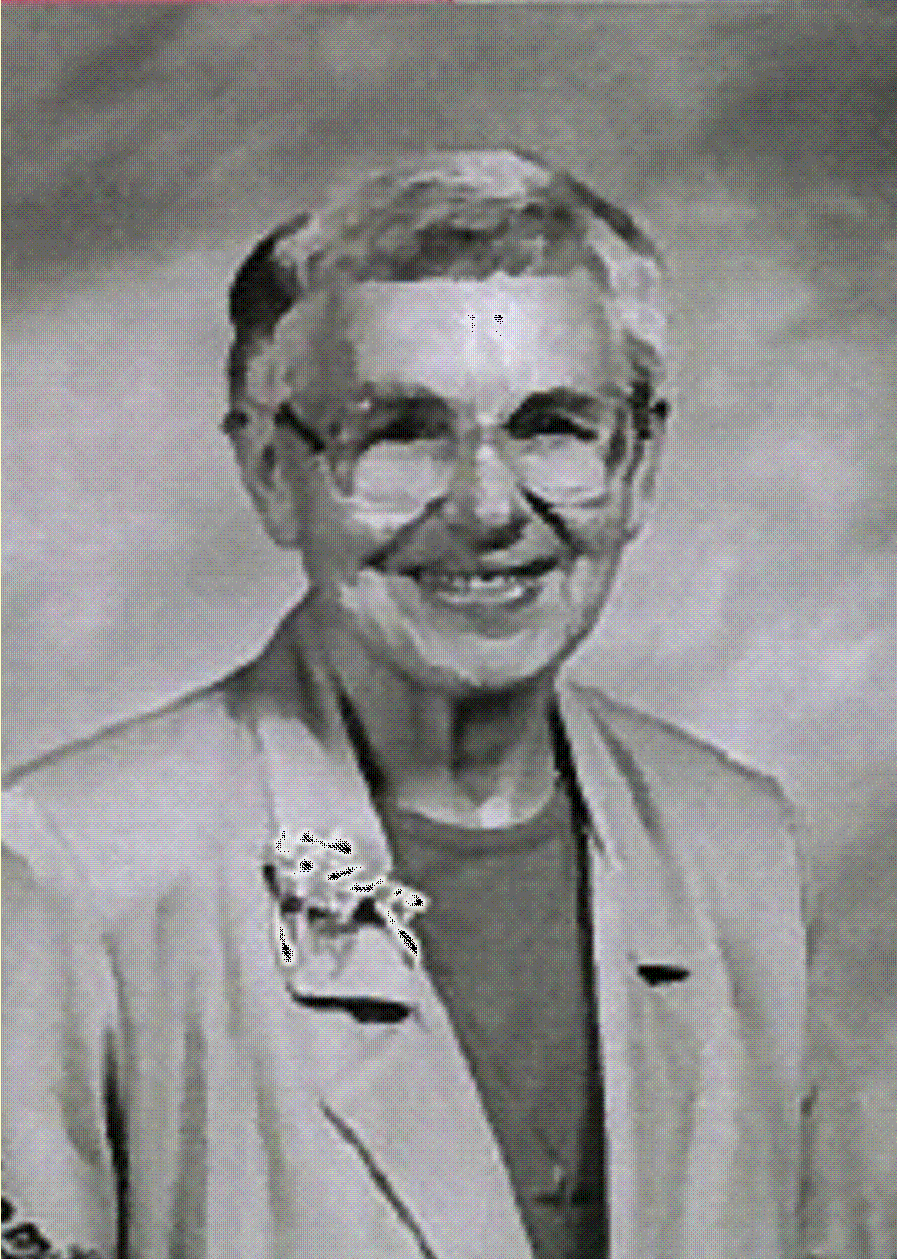
Sister Janet Bucher, Covington, KY
Sister Janet is the administrator of the Church of Our Savior in Covington’s Eastside, a small church whose members are mainly African Americans. Sister Janet is known as the driving force to keep the historic church open to meet the needs of her congregation. She holds educational programs to teach young people; community forums to educate the neighborhood and seminars on health to promote safety and well-being. Sister Janet was among the community leaders who fought for 17 years to have Dr. Martin Luther King Jr.’s name added to 12th Street in Covington. Sister Janet has used her voice to end wars, fight poverty, racism and sexism.

Judith G. Clabes, Paris, KY
Mrs. Clabes was the first and only woman editor of The Kentucky Post. As editor from 1983-1995, Mrs. Clabes fought for social change and civil rights by hiring minorities, demanding better treatment of women in the workplace and calling on Kentucky officials for more education funding and higher learning standards for students. She commissioned a year-long investigation in a series of articles that found inequality in education, housing, employment, criminal justice and politics for African Americans in Northern Kentucky. Mrs. Clabes also edited a series about politics in education that found many school districts in Kentucky had patronage jobs that diverted money from students in the classroom.

Nick Clooney, Augusta, KY
Nick Clooney is an award-winning broadcaster and print journalist who anchored the evening news at WKRC Television (Channel 12) in Cincinnati from 1976-1984 and 1986 and 1988. As a broadcaster, Nick Clooney, covered such events as the 1977 Beverly Hills Supper Club fire in Southgate that killed 165 people, the frozen winters of 1977 and 1978 and city hall in both Cincinnati and Northern Kentucky. He has also been a news anchor in Los Angeles, Salt Lake City and Buffalo. Mr. Clooney championed the cause of diversity in the newsroom and mentored minority journalists on his staff.

Joe Cowan, Monticello, KY
Mr. Cowan is the disability coordinator and instructional specialist at Somerset Community College. Mr. Cowan helps students with disabilities gain access to the college. He also teaches English as a second language which helps many migrant students earn their General Education Diplomas. Mr. Cowan, who uses a wheelchair, received his undergraduate degree in Social Work from the University of Kentucky in 1995. He earned his graduate degree in vocational rehabilitation from UK in 2001. Mr. Cowan was a Dean’s list student at UK and was inducted into the Chi Sigma Iota International Honor Society. He teaches Sunday school and occasionally preaches at Sunday morning services.
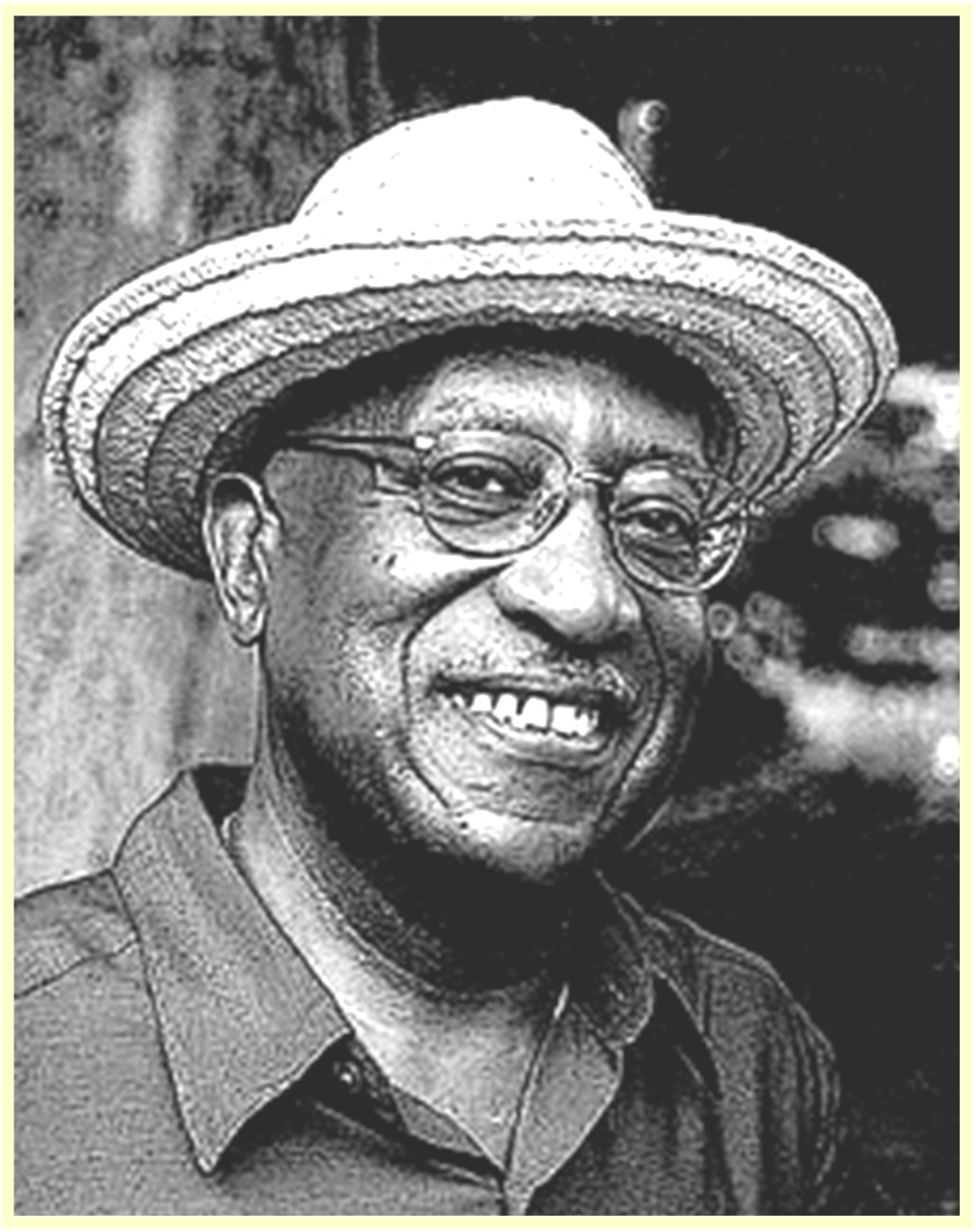
Robert Cunningham, Louisville, KY
Mr. Cunningham, a native of Trigg County, has spent his life fighting for justice in the workplace, housing, public accommodations and access to finances. During the 1970s, Mr. Cunningham helped form the Black Workers Coalition to challenge workplace racism and access to jobs that were denied to blacks and other minorities. Mr. Cunningham later joined the Kentucky Branch of the National Alliance Against Racism and Political Repression, where he fought for prison reform, economic justice, and school equity and against the death penalty. Mr. Cunningham, a worker for the Louisville Water Company, has used his voice to bring blacks and whites and opposed people together to create a better and just society that would benefit all.

Terry R. Cunningham, Maysville, KY
A native of Mayville, Mr. Cunningham helped re-charter the Maysville-Mason County NAACP in 2004. As the local NAACP president, Mr. Cunningham helped bring the state NAACP convention to Maysville in 2009, where he introduced many state Civil Rights leaders to local business, political, educational and religious leaders in his hometown. Mr. Cunningham, as NAACP president, also persuaded the Maysville City Commission to revive the Maysville Human Rights Commission. Mr. Cunningham was the first African American elected the Maysville Board of Education and later became board president, where he helped establish a relationship with the Maysville Community and Technical College to encourage youth to attend college. Mr. Cunningham also chartered buses for students in Mason County to attend special programs by the Kentucky Human Rights Commission that encouraged youth to become lawyers, judges, firefighters and police officers. Mr. Cunningham has fought for better police/community relations and inspired the police chief to seek diversity training for his officers. Mr. Cunningham served six years in the U.S. Army and spent time in Panama. He has received the Army Commendation Medal for Meritorious Service and was a union steward for Elco/Textron. He worked to close the achievement gap for minority students as a member of the National Black Caucus of School Board Members.

Judge Robert E. Delahanty (1923-1993), Louisville, KY
Judge Delahanty was elected to the Jefferson District Court in 1978 as was the first chief judge. As judge, he helped implement the United State court system in Jefferson County and led the effort to replace the Bail Bond system that was oppressive to low-income people with Pre-Trial release, which allows some defendants to be released on their own recognizance without posting bail. Mr. Delahanty, was known as a fair and compassionate judge. But he is best known in the Civil Rights community for his defense of those who had been denied access to jobs, housing, public accommodations and bank loans because of their race, color, gender, disability or national origin.

Nancy Tyler Demartra, Louisville, KY
Ms. Demartra is a retired teacher from Jefferson County who grew up in Graves County when Kentucky was segregated and black children had to attend a one-room frame school with tattered books and no bathroom while their white counterparts attended new schools that had running water and heat. Ms. Demartra said her mother and grandfather read to her about civil rights leaders and instilled a sense of dignity that she always maintained. She and another student helped integrate Murray State University in the 1950s.

Ms. Bennie Doggett, Covington, KY
Ms. Doggett spent more than a decade as a social worker for the William Martin Northern Kentucky Community Center in Covington, where she helped the homeless find housing, the unemployed find jobs and students graduate from high school. She established a program at the community center that brought suburban white students to inner-city Covington to work with African American youth. She worked with police to rid the East side of Covington of drug trafficking while at the same time demanding that the officers respect the residents that they serve. Ms. Doggett owned a clothing boutique in Covington and served on numerous boards to provide bridges between blacks and whites in Northern Kentucky.

Alice Allison Dunnigan (1906-1983), Russellville, KY
Ms. Dunnigan rose from a small, segregated school in Russellville to participating in the heights of political power. As a journalist, she covered – and influenced – presidents from Harry Truman to Lyndon Johnson and encouraged them to end segregation and support equal opportunity in education, employment and housing. Ms. Dunnigan attended Kentucky State University and was a public school teacher from 1924-1942. Ms. Dunnigan began her journalism career after World War II at the Associated Negro Press, where she headed the Washington Bureau. Her reports were carried in 112 newspapers and read by thousands of people across the country.

Annie Leona Thomas Hargraves (1905-1976), Covington, KY
Mrs. Hargraves was an educator during segregation in Covington Public Schools. She inspired her students to participate in civil rights marches and other activities. Mrs. Hargraves was born in Ontario, Canada and held a bachelor's of science degree in elementary education from the University of Cincinnati. Mrs. Hargraves helped many children after school and taught them about art, African American history and social studies. She inspired many to pursue their dreams. One student later became the publisher of her own newspaper in Covington.

Judge Nathaniel R. Harper (1846-1921), Louisville, KY
Nathaniel R. Harper became the first black lawyer, judge, and notary in Kentucky after moving to Louisville in 1870. Judge Harper was born in Indianapolis and raised in Detroit, where he attended school and studied law. In 1871, Mr. Harper was one of the first two blacks licensed to practice in Kentucky. In 1878, Mr. Harper became the first black notary in the state and in 1885, he became the first black to preside as a judge in the Louisville city courts. Mr. Harper fought for the rights of blacks to serve on state juries and founded a law school that was eventually absorbed into the Central Law School.

Rev. A.D. King Sr. (1930-1969), Atlanta, formerly of Louisville, KY
Rev. King was a human rights leader who fought for open housing, jobs for poor people, voting rights and civil rights and marched from Louisville to Alabama to Atlanta to obtain his goals. The younger brother of the Rev. Martin Luther King Jr., Rev. A.D. King organized thousands of people in his own right to obtain equality and liberation from police and political oppression. Rev. King was the pastor at four churches, including Zion Baptist Church in Louisville and Ebenezer Baptist Church in Atlanta, where is father and brother also pastored. Rev. King endured bombings to his church in Louisville and his home in Alabama, yet he continued his call for non-violence social change.
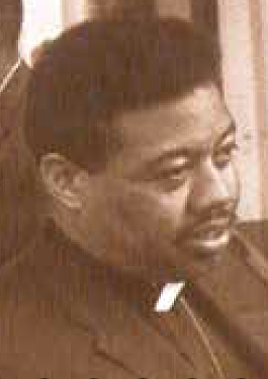
Rev. Leo Lesser Jr. (1928-1974), Louisville, KY
Rev. Lesser was a contemporary and friend of Rev. Martin Luther King Jr. and his brother, Rev. A.D. King. And like the Kings, Rev. Lesser dedicated his life to fighting for fair housing, equal opportunity in jobs and education. Although he was a man of peace, Rev. Lesser was often met by rocks and jeers as he led demonstrations in Louisville during the 1960s and early 1970s to promote open housing, fair hiring and equality in education. He served as president of the Kentucky Southern Christian Leadership Conference, executive director of the West End Community Council and associate director of the Louisville-Jefferson County Human Relations Commission.

Gracie M. Lewis, Louisville, KY
Ms. Lewis, an officer with the Kentucky Alliance Against Racist and Political Repression in Louisville, has spent a lifetime promoting fairness and equality in employment, housing, education and criminal justice. In early 2007, she helped lead a large contingent of Louisville activists to Washington, D.C., where they implored the U.S. Supreme Court to allow Jefferson County to continue its voluntary integration policy in its public schools. Ms. Lewis has helped win jobs and better working conditions as a union leader for the American Federation of Government Employees; she pushed for the creation of a police review board in Louisville and fought for affirmative action programs in Louisville to ensure that minorities are represented in employment. She has rallied for environment protection and more green space in Louisville and more affordable and safe housing for low-income people.

Charles D. Neblett, Russellville, KY
Mr. Neblett’s long career as a civil and human rights activist has taken him through more than 40 states and 50,000 miles as a member of The Freedom Singers, a legendary quartet that performed at the 1963 March on Washington and alongside other musicians Pete Seeger, Bob Dylan, Joan Baez and Peter, Paul and Mary. Mr. Neblett helped form The Freedom Singers in 1962 under the direction of the Student Non-Violent Coordinating Committee, which helped plan the March on Washington where Rev. Martin Luther King Jr. gave his “I Have a Dream Speech. Mr. Neblett began fighting for civil rights after the 1955 death of Emmett Till, a black teenager who was killed in Mississippi.
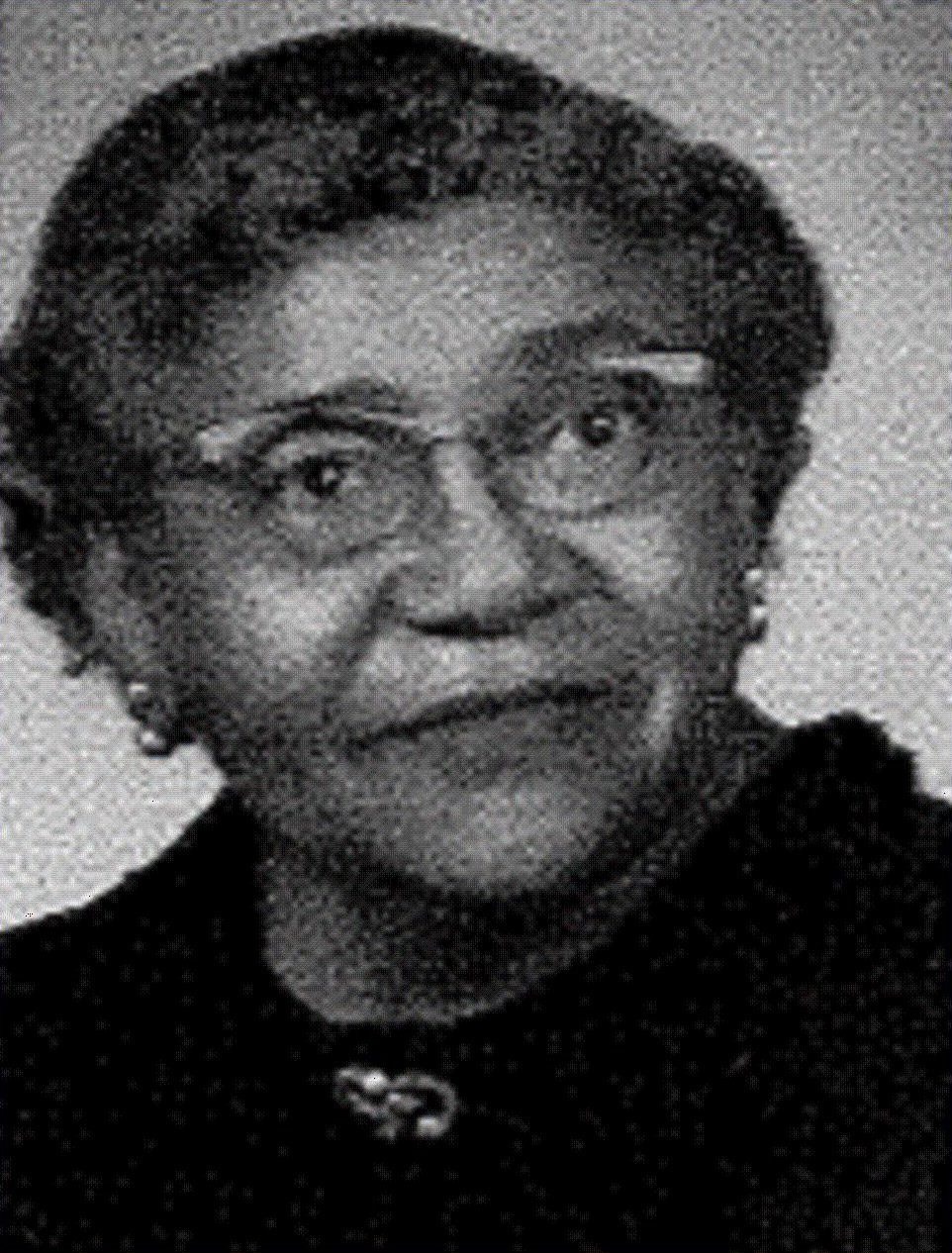
Mrs. Hattie L. Neblett (1903-1993), Owensboro, KY
Dr. and Mrs. Neblett were the founders of the H.L. Neblett Community Center in Owensboro, which has helped thousands of youth further their education, find jobs and become productive citizens. Dr. Neblett opened his practice in Owensboro in 1930, and for the next 24 years, Dr. Neblett was the only black doctor in town. During his first day on the job, a black youth died from a gunshot wound, which prompted Mrs. Neblett to open the family’s basement as a community center to give the African American youth a place to learn, play and grow in a safe environment. By 1940, the Neblett raised money to buy a building to help the youth and the H.L. Neblett Center at 801 West 5th Street in Owensboro was on its way to a permanent home. The Nebletts opened their home and hearts to needy children during a time of segregation and separation of the races. They wanted African American children to have the opportunity to study, exercise and learn culture and history in a safe environment. Today, the H.L. Neblett serves children of and adults of all races. Mrs. Neblett herself taught children music as served many years as director and president of the center. While her husband helped raised money and tended to the medical needs of the black community, Mrs. Neblett tended to the youth who needed guidance and support. The Nebletts in 1978 received the Jane Adams Medal from the National Federation of Settlements and Neighborhood Centers for opening their recreation center.

Dr. Reginald C. Neblett (1900-1978), Owensboro, KY
Dr. and Mrs. Neblett were the founders of the H.L. Neblett Community Center in Owensboro, which has helped thousands of youth further their education, find jobs and become productive citizens. Dr. Neblett opened his practice in Owensboro in 1930, and for the next 24 years, Dr. Neblett was the only black doctor in town. During his first day on the job, a black youth died from a gunshot wound, which prompted Mrs. Neblett to open the family’s basement as a community center to give the African American youth a place to learn, play and grow in a safe environment. By 1940, the Neblett raised money to buy a building to help the youth and the H.L. Neblett Center at 801 West 5th Street in Owensboro was on its way to a permanent home. The Nebletts opened their home and hearts to needy children during a time of segregation and separation of the races. They wanted African American children to have the opportunity to study, exercise and learn culture and history in a safe environment. Today, the H.L. Neblett serves children of and adults of all races. Mrs. Neblett herself taught children music as served many years as director and president of the center. While her husband helped raised money and tended to the medical needs of the black community, Mrs. Neblett tended to the youth who needed guidance and support. The Nebletts in 1978 received the Jane Adams Medal from the National Federation of Settlements and Neighborhood Centers for opening their recreation center.

Porter G. Peeples, Lexington, KY
P.G. Peeples is the CEO of the Urban League and under his leadership, the nonprofit has made its mark by building affordable housing, providing workforce and professional development opportunities, and offering youth and education programs. The organization also has a reputation for advocating for African Americans and the disadvantaged. Peeples continues to dedicate himself to the Lexington community through his active participation on numerous local and national boards. His work has also led him to receive various awards.
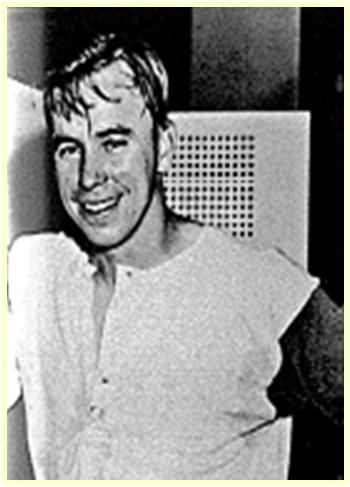
Harold “Pee Wee’’ Reese (1918-1999), Louisville, KY
Pee Wee Reese was an All-Star shortstop for the Brooklyn and Los Angeles Dodgers who won a World Series Championship in 1955. But he is perhaps best known for his groundbreaking friendship, leadership and support of teammate Jackie Robinson and other African Americans when Mr. Robinson broke the color line in Major League baseball in 1947. Mr. Reese, a native of Meade County, Ky., refused to sign a petition that other white players had circulated to protest Mr. Robinson’s historic achievement. Later, during a game in Cincinnati, Mr. Reese quieted the crowd that was jeering Robinson by putting his arm on Mr. Robinson’s shoulder to show his support for his teammate.
Sister Pat Reno, Shelbyville, KY
Sister Pat Reno is the executive director of Centro Latino of Shelbyville, where she provides food, clothing and counseling to low-income and new residents in Shelby County. Centro Latino offers English classes to the Latin community and helps residents obtain their GED. Sister Pat works with the Mexican Consulate in Indianapolis to make learning programs available to adults. She also provides translation for Latinos and several times has helped workers obtain payment when they were denied by their employers. She has helped local police gain trust with the Latin community, and has provided referrals for health care, housing, and attorneys for those in need.
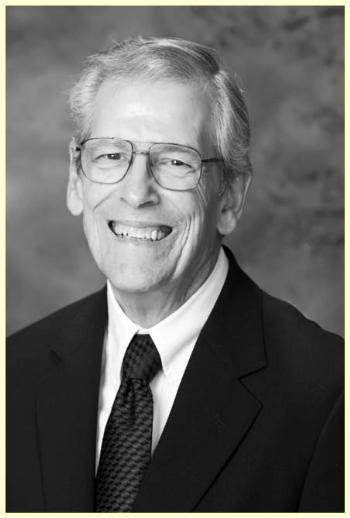
Norbert J. Ryan, Versailles, KY
Mr. Ryan received his BS degree in Therapeutic Recreation from Eastern Kentucky University in 1976 and has devoted his life to helping people with disabilities. Mr. Ryan has been the Kentucky Americans with Disabilities Act Coordinator since 2001. His office provide training and technical assistance to state government, agencies and programs regarding the Disabilities Act and its effect on employment, programs, services and facilities. Mr. Ryan works to ensure that people with disabilities are treated fairly in employment, housing and public accommodations. Mr. Ryan advocated for parents and children with significant disabilities when he worked at the Child Development Center of the Bluegrass from 1976-1991 in Danville.
Judge Ernesto Scorsone, Lexington, KY
As a lawyer, state representative and senator, Judge Scorsone is known to promote human rights, expand minority hiring and closing the achievement gap for Kentucky students. Judge Scorsone received his law degree from the University of Kentucky College of Law in 1976. He was elected to the Kentucky House of Representatives in 1984, where he served 12 years. He was subsequently elected to the Kentucky Senate, where he also served 12 years. Mr. Scorsone was appointed to Fayette Circuit Court by Gov. Steve Beshear in 2008. During his legal and political career, Judge Scorsone has fought to extend civil rights protections based on sexual orientation.
Walter T. Shamble, Hopkinsville, KY
Shamble is advocate for the poor, a defender of equal rights in the justice system. Mr. Shamble has served as a vice-president of the local NAACP and as a member of the local Human Relations Commission. He has been the director of the Christian County Day Treatment Center and has written articles for many publications. Mr. Shamble, a graduate of Kentucky State University, is known for demanding justice for an African American youth who was tried for wanton murder in the death of two white women after a car accident.
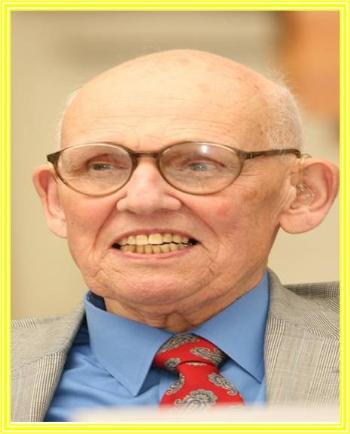
Lee B. Thomas Jr., Louisville, KY
Mr. Thomas, whose family founded the American Saw and Tool Company and Vermont American Corp., used his standing as a prominent business leader to march in the 1960s with Rev. Martin Luther King Jr. and demand equal rights for all, regardless of color. Mr. Thomas was the CEO for Vermont American for 24 years and the company’s revenue grew from $9 million to $450 million. After Vermont American was taken over by another company, Mr. Thomas bought Universal Woods. But his supporters say Mr. Thomas is most proud of his work as a founding member of the Board of Interfaith Paths to Peace in Louisville and supporting civil rights laws to end segregation in public accommodations.

Ann Wagner, Louisville, KY
Wagner, a lifelong member of the NAACP, has taught, counseled and parented hundreds of boys and girls through the years as Youth Council Advisor of the Kentucky NAACP. Mrs. Wagner took youth on field trips to the Louisville-Jefferson County Board of Aldermen and the Jefferson County Board of Education to learn how government is operated. She helped young people raise money to attend regional and national NAACP conferences. Mrs. Wagner encouraged children to complete their education, find jobs and become productive members of society. Mrs. Wagner served many years on the Louisville NAACP Board of Directors and was president of the Kentucky NAACP Women’s Auxiliary.

Marsha Weinstein, Prospect, KY
Ms. Weinstein has spent most of her life fighting for health, safety, education and economic empowerment for women and girls. In 1992, Ms Weinstein began her four-year term as executive director of the Kentucky Commission on Women. But she has been active in women’s rights issues since she moved to Kentucky in 1980. She has testified before the General Assembly on the need for domestic violence centers and helped found Kentucky Women Advocates in 1986 and the Court Appointed Special Advocates, which protects the rights of children in court, in 1987. She is a co-founder of the Alliance for Girls, and has served on the boards of Kentucky Youth Advocates and the Religious Coalition for Abortion Rights.